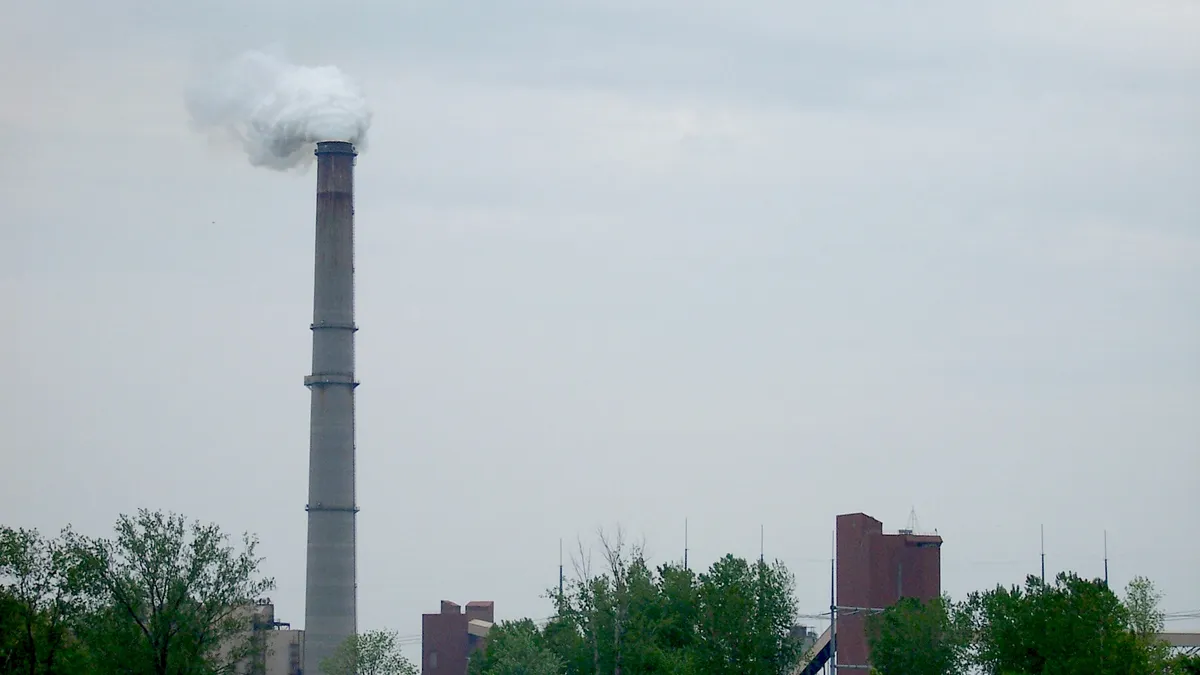Dive Brief:
- The New York Department of Environmental Conservation (DEC) proposed new regulations on Wednesday limiting existing power plants to either 1,800 lbs of CO2/MWh of gross electrical output or 180 lbs of CO2/mmBTU of input.
- The rule is expected to allow New York to achieve one of Gov. Andrew Cuomo's signature energy pledges: to phase out coal entirely by 2020 while still maintaining reliable and affordable power.
- The New York Independent Systems Operator recently released a carbon pricing straw proposal, aimed at getting wholesale energy markets to reflect the state's aggressive decarbonization goals — a 40% reduction in greenhouse gas emissions by 2030, 80% by 2050, compared to 1990.
Dive Insight:
Federal efforts to impose carbon emission limits on power plants have been stalled for some time amid litigation and an unfavorable political climate, leaving it to states to take action to address a major source of greenhouse gas emissions.
New York's proposed carbon requirements for existing power plants are expected to force offline the last coal-burning electric generating units (EGU), though they do not assure this.
Large coal-fired generators "will not be able to meet the proposed CO2 emission standard without the installation of controls (such as CCS)," the proposed rule states. "CCS technology would add significantly to the cost of construction and operation of existing coal-fired EGUs, and ultimately this expenditure would be anticipated to be passed along as increased electricity costs for the end user."
The department said it expects natural gas and oil-fired units will be able to meet the proposed emission limits, and will not need to install carbon capture technology. The proposal states that "absent the installation of CCS or other technology, coal-fired major EGUs will need to repower to a cleaner fuel or cease operations."
"No existing coal-fired electric generation emission sources are expected to continue operating in New York beyond December 31, 2020 based in part on the" proposed rules and revisions, DEC said.
Several environmental groups cheered the proposed rule, which Irene Weiser, coordinator of Fossil Free Tompkins, said will "ensure that we are transitioning off all fossil fuels by retiring the dirtiest and most inefficient plants in our state."
New York has two operating coal-fired power plants that would be affected by the proposed rule — the 323 MW Cayuga plant in Lansing and the 655 MW Somerset plant in Barker.
"The communities surrounding Cayuga and Somerset could incur significant tax implications if the facilities cease operations beyond 2020," the proposed rule states. "Both of these facilities, however, have other compliance options under the proposed revisions to Part 251, including repowering to a cleaner fuel or employing CCS or another advanced CO2 abatement technology."
Solar generation is planned at the Cayuga plant.
The plants are also used less frequently, as coal has fallen out of favor. The DEC said operating data from both facilities "shows a significant decline in their operating capacities over the past few years.
DEC will take public comment on the proposed rule until July 29, with several public hearings also scheduled for July.














